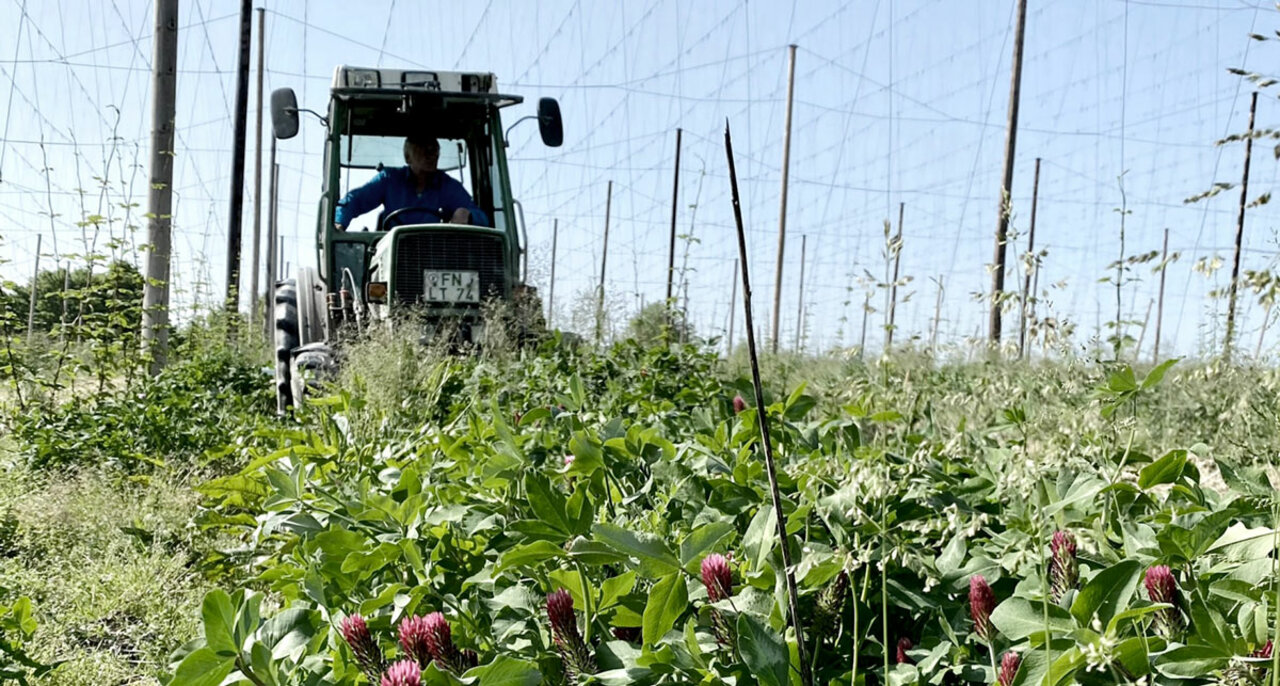
Using predatory mites against the common spider mite (red spider)
Organic hop farmers test an innovative approach to control the common spider mite
One of the biggest challenges in organic hop cultivation is the required alternative & innovative plant protection. The synthetic plant protection products used in conventional cultivation against peronospora, mildew, aphids and common spider mites (known as red spider) are not allowed in organic hop cultivation. Instead, the plant health of organic hops is based on five pillars:
- demand-oriented plant nutrition and healthy soils
strengthens the plant's own resistance - high biodiversity in the hop garden
promotes beneficial insects and keeps pests in check - use of basic and natural substances against pests
direct & indirect control of fungal diseases & pests - mechanical support of hop plants
defoliate of lower hop leaves, reduce fungal & spider pressure - use of resistant hop varieties with high resistance
Perhaps another pillar can soon be added to this mix of strategies: The targeted release of beneficial insects in the hop garden. This year, German organic hop growers released predatory mites on more than 80 hectares in the Hallertau and in Tettnang. The aim of the measure is to keep the common spider mite in the hop garden under control. This is because the spider mite, which is barely visible to the naked eye, damages the hops by biting the hop leaves with its mouth parts and absorbing plant sap. The leaves turn red over time and the hop plant is severely weakened. Predatory mites are the natural enemy of the common spider mite and for this reason are highly welcome in the hop garden. In order to strengthen the natural predatory mite population, the Koppert company from the Netherlands, in cooperation with Dr Florian Weihrauch of the Bayerischen Landesanstalt für Landwirtschaft (LfL), has developed an approach whereby a substrate of sawdust is spread on the hop plants by machine. The sawdust is the carrier material for two predatory mite species. This mix is like a special force team against the common spider mite. As soon as the predatory mites reach the hop plants, they start hunting the spider. The hoped-for result is not a complete eradication of the dangerous spider mites, but rather a balance between spiders and beneficial insects that prevents greater damage.

The challenge of this approach lies in the details, because success depends on several factors. For example, the timing of the application, the technical equipment and the food supply in the hop garden all play an important role in ensuring that the predatory mites can fulfil their purpose. However, according to the LfL and the Koppert company, great success was achieved with the predatory mites applied in the hot common spider mite summer of 2022. This approach represents a great opportunity for organic hop cultivation. It was therefore natural for the suppliers of the Gruppe Bio Hopfen to gain their own experience with this promising approach. Thus, predatory mites were colonised on a large part of the organic hop area. We will see in the next few weeks whether the measure is successful.
